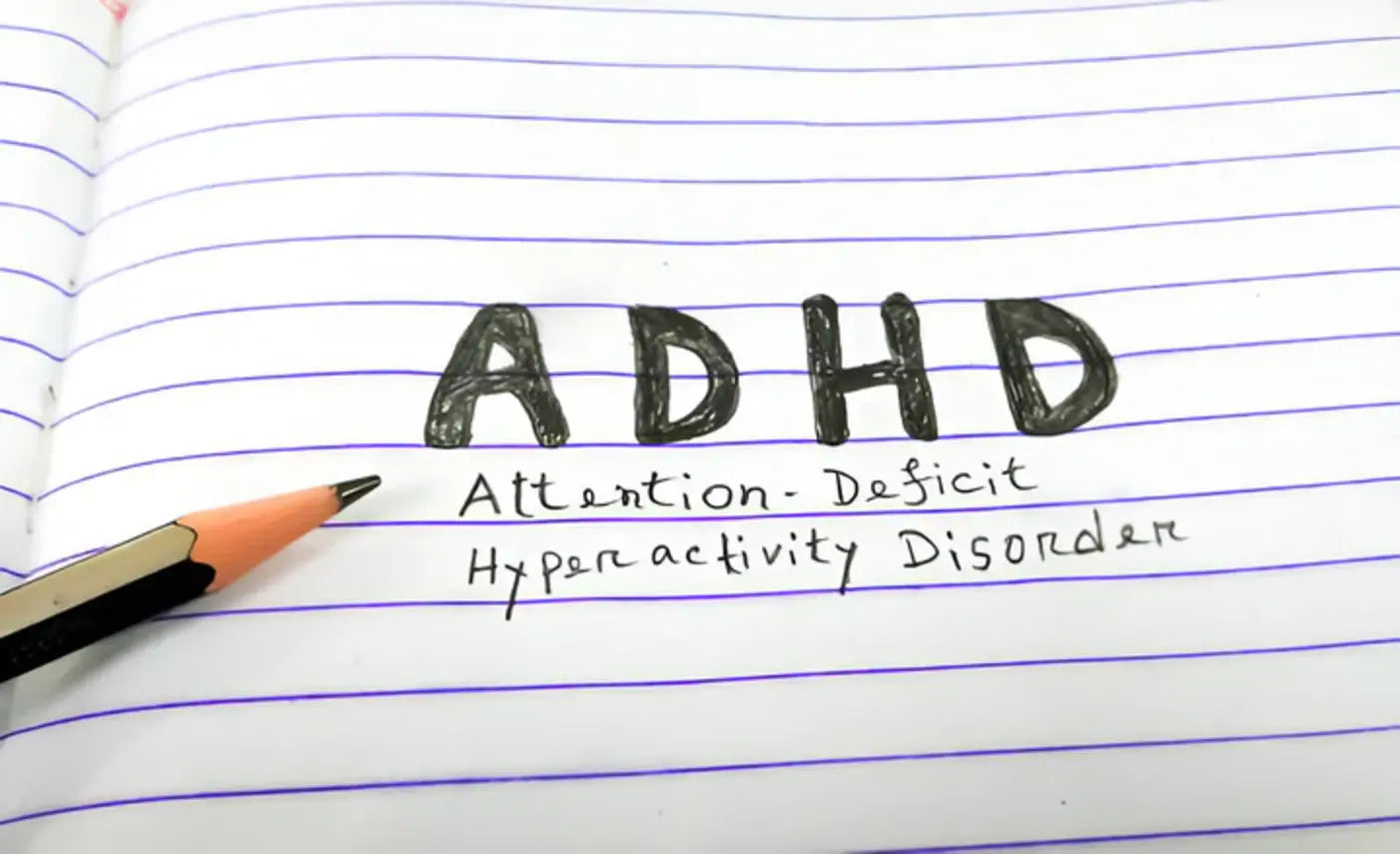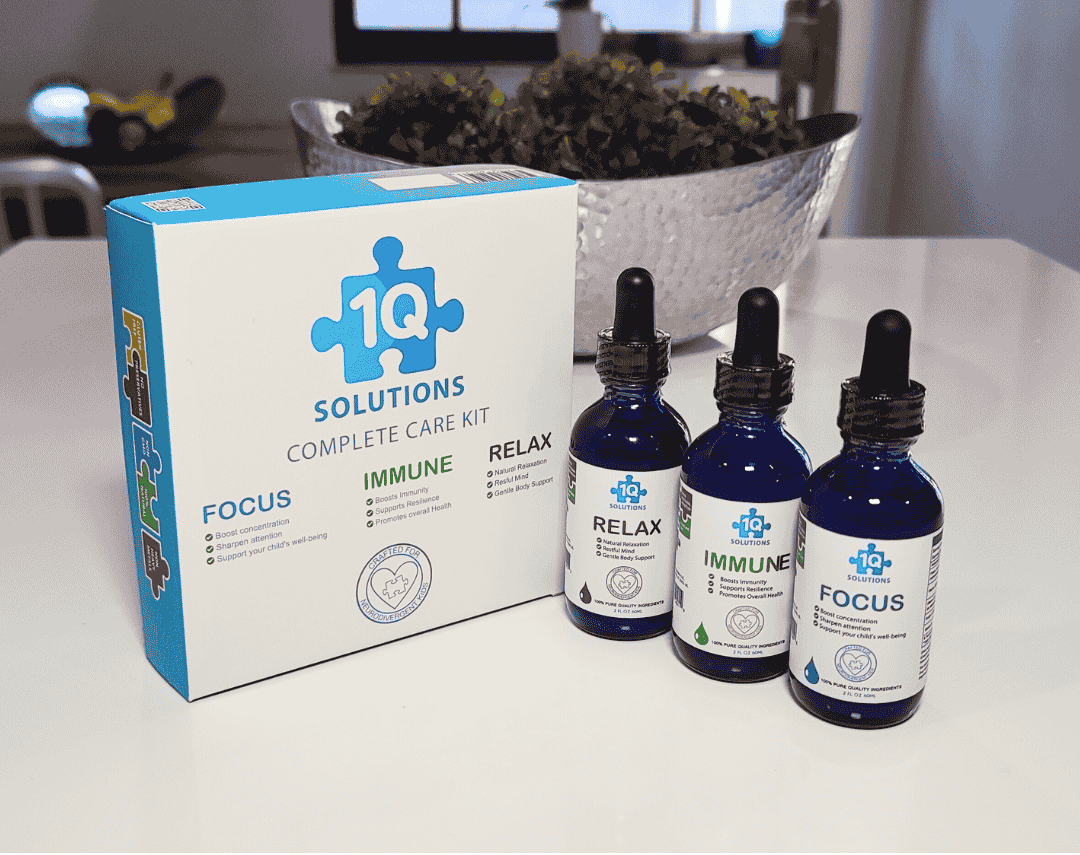
What Makes Magnesium Glycinate Effective for Kids’ Calm and Sleep?
When your child struggles to fall asleep, stay asleep, or remain calm during the day, it affects the entire family. For parents of neurodiverse children—including those with autism, ADHD, or sensory sensitivities—these challenges can be particularly persistent and exhausting.
Fortunately, nature offers gentle support in the form of magnesium glycinate—a mineral and amino acid compound that’s gaining recognition as one of the most effective natural sleep and calming aids for children. At the 1Q Solutions store, we specialize in scientifically backed, pediatrician-approved formulations like Relax‑1Q that feature magnesium glycinate in a bioavailable liquid format made just for kids.
In this comprehensive guide, we’ll explore how magnesium glycinate works, why it’s so well-tolerated, and how it supports children’s emotional regulation, focus, and restful sleep.
Why Magnesium Matters in Children’s Health
Magnesium is a vital mineral that supports mood, focus, and sleep—key areas of concern for many parents of neurodiverse children. A deficiency can lead to irritability, restlessness, and difficulty winding down at night.
The Role of Magnesium in the Nervous System
Magnesium is essential to over 300 biochemical processes in the body, particularly those involving nerve function, muscle relaxation, and stress regulation. In the developing nervous systems of children, magnesium helps modulate the release of neurotransmitters like GABA, which calms the brain and promotes restful sleep.
Signs of Magnesium Deficiency in Neurodiverse Children
Low magnesium levels can present subtly in children, often misinterpreted as behavioral issues or hyperactivity. Common signs include:
· Irritability or anxiety
· Difficulty sleeping
· Muscle twitching or restlessness
· Sensitivity to noise or light
· Poor concentration or mood swings
Neurodiverse children are often more sensitive to micronutrient imbalances, making magnesium support especially important.
How Magnesium Supports Focus, Mood, and Sleep
Magnesium glycinate for children calms the sympathetic nervous system (the body’s "fight or flight" response), helping shift into a parasympathetic, restful state. This aids in:
· Lowering anxiety
· Easing bedtime resistance
· Improving quality of sleep
· Enhancing daytime focus
Understanding Magnesium Glycinate: The Gentle, Bioavailable Form
Magnesium glycinate stands out as a highly absorbable, child-friendly form of magnesium that’s easy on the stomach. It combines magnesium with glycine to promote calm without causing digestive upset.
What Is Magnesium Glycinate and How Is It Made?
Magnesium glycinate is a compound formed by bonding magnesium with glycine, a calming amino acid. This chelated form ensures higher absorption and fewer digestive side effects than other types of magnesium.
Glycine’s Calming Role on the Brain and Muscles
Glycine acts as an inhibitory neurotransmitter in the brain, helping to quiet overactive mental activity and promote muscle relaxation. This makes magnesium glycinate particularly useful for bedtime use.
Why It’s Better Tolerated Than Other Forms (Citrate, Oxide)
Unlike magnesium citrate (which can cause loose stools) or magnesium oxide (which has poor absorption), magnesium glycinate is:
· Gentle on the stomach
· Well-tolerated by sensitive children
· Highly bioavailable—meaning the body absorbs more of it
· Calming without sedating
How Magnesium Glycinate Affects Sleep and Anxiety in Kids?
This powerful mineral helps regulate the nervous system and balance neurotransmitters, easing anxiety and improving sleep quality. For children with ADHD or sensory sensitivities, it can be much smoother.
Neurological Pathways Influenced by Magnesium
Magnesium helps modulate NMDA and GABA receptors—two major components of sleep and emotional regulation. When magnesium is available in proper amounts, children may experience:
· Reduced mental overstimulation
· Decreased sensory overwhelm
· Improved ability to wind down at night
Research on Magnesium and Pediatric Anxiety/Insomnia
Emerging studies suggest that magnesium supplementation improves sleep quality and reduces anxiety symptoms in children. While more clinical trials are needed, parents and pediatricians consistently observe better emotional regulation, longer sleep durations, and fewer night wakings in children using magnesium glycinate.
Real-World Observations: What Pediatricians and Moms Report
Parents commonly report that after 1–2 weeks of magnesium glycinate use, children:
· Fall asleep faster
· Have fewer bedtime tantrums
· Sleep more soundly through the night
· Wake in a calmer mood
Is Magnesium Glycinate Safe for Children?
Magnesium glycinate is considered one of the safest options when used as directed and is widely recognized as a highly effective natural sleep aid for kids. It’s non-habit forming, gentle, and generally free from side effects when given in appropriate doses.
Review of Safety Standards and Pediatric Guidelines
Magnesium glycinate is considered safe for children when used appropriately. It is non-addictive, non-sedating, and does not disrupt the body’s natural circadian rhythm. It is often recommended by integrative and functional pediatricians as a first-line support for sleep and anxiety.
Age-Based Dosage Chart for Kids
While exact dosages should be approved by your child’s doctor, general guidelines are:
· Ages 1–3: 80–100 mg daily
· Ages 4–8: 130–200 mg daily
· Ages 9–13: 240–350 mg daily
Liquid forms make accurate dosing much easier and more adjustable based on age and body weight.
Common Side Effects and How to Avoid Them
Magnesium glycinate is typically well tolerated. Occasionally, mild side effects may include:
· Soft stools (especially if dosed too high)
· Stomach upset if taken on an empty stomach
Always start with a lower dose and increase gradually.
When to Avoid Magnesium (Interactions, Medical Conditions)
Children with kidney disorders or those on diuretics or certain antibiotics should avoid magnesium supplements unless under medical supervision. Always check with a pediatrician before starting a new supplement.
Magnesium Glycinate vs. Sleep Medications: A Parent’s Dilemma
Unlike prescription sleep aids, magnesium glycinate supports the body’s natural sleep rhythms without sedation. It offers a more holistic, sustainable way to improve sleep and reduce stress in children.
Comparing Effects: Natural Supplement vs Prescription Sleep Aids
Prescription sleep medications for children may work quickly but often come with side effects such as grogginess, dependency, or emotional blunting. Magnesium glycinate offers:
· Gentle, gradual support
· Non-drowsy calming effect
· No next-day fatigue
Non-Habit Forming Benefits of Magnesium
Magnesium glycinate supports natural processes in the body without suppressing them. It helps the body self-regulate rather than override its functions, reducing the risk of sleep rebound or dependency.
When Should You Choose Supplements Over Medications?
Supplements like magnesium glycinate are ideal for:
· Children with mild to moderate sleep or anxiety concerns
· Families seeking a holistic or preventative approach
· Long-term wellness and nervous system support
Why We Use Magnesium Glycinate in Relax‑1Q
Relax‑1Q is thoughtfully formulated with magnesium glycinate because it delivers calm support without harsh chemicals or artificial ingredients. It works in harmony with your child’s body to promote better rest.
Our Criteria for Safe and Effective Pediatric Supplementation
At 1Q Solutions, we prioritize:
· Bioavailability
· Gentle digestion
· Proven safety
· Calm without sedation
Magnesium glycinate checks all these boxes, making it our mineral of choice for Relax‑1Q.
Liquid Absorption: Why Form Matters
Many children have difficulty swallowing pills or chewable tablets. Liquid magnesium is absorbed faster, it is easier to measure, and ensures consistent results.
Designed by Pediatricians, Moms, and Pharmacists Experts
Relax‑1Q is the result of a collaboration between health professionals and parents who understand real bedtime struggles. Every ingredient is selected with pediatric needs in mind.
How Relax‑1Q Combines Magnesium with L-Theanine and Chamomile
Alongside magnesium glycinate, Relax‑1Q includes:
· L-Theanine – promotes calm focus
· Chamomile extract – gently soothes anxiety
This trio supports both emotional and physical relaxation in neurodiverse children.
How to Add Magnesium Glycinate to Your Child’s Routine Safely
Consistency and timing are key when introducing a supplement like magnesium glycinate. Starting with a low dose in liquid form and pairing it with a calming bedtime routine can lead to lasting sleep improvements.
Best Time to Take It (Morning vs Evening)
For sleep support, magnesium glycinate is best given in the evening, 30–60 minutes before bedtime. For anxiety or attention challenges, some parents use a split dose (morning and night).
Pairing with Bedtime Routines and Sleep Hygiene
Combine magnesium with:
· Predictable bedtime rituals
· Reduced screen time
· Soothing sensory tools (e.g., white noise, weighted blanket)
This maximizes its calming benefits and supports longer-lasting habits.
Tracking Improvement with a Sleep Journal
A sleep diary helps identify patterns and track improvement. Record:
· Bedtime and wake time
· Night wakings
· Behavior before and after supplement use
This data is invaluable for parents and pediatricians alike.
FAQs
Conclusion: Magnesium Glycinate as a Gentle, Reliable Support for Your Child
Magnesium glycinate is one of the most effective, gentle, and science-backed supplements available for improving sleep and reducing anxiety in neurodiverse children. From calming the nervous system to promoting better focus and restful nights, it offers a natural, non-drowsy solution parents can trust.
At 1Q Solutions, we believe every child deserves a peaceful night and a calm start to the day. That’s why we include magnesium glycinate—along with other soothing, liquid vitamins for kids—in our Relax‑1Q formula. Designed by experts, backed by science, and trusted by families—Relax‑1Q is your partner in calm. Have questions about how Relax‑1Q fits into your child’s routine? Contact us today—we’re here to help.








